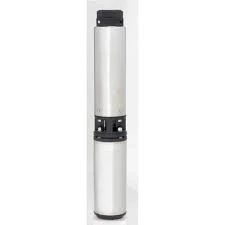Dec . 07, 2024 18:27 Back to list
industrial submersible pump
Industrial Submersible Pumps An Insights into Versatility and Efficiency
In the world of industrial applications, the importance of reliable and efficient equipment cannot be overstated. One such equipment that has gained traction across diverse industries is the submersible pump. These pumps are designed to operate while submerged in the fluid they are pumping, offering unique advantages that make them suitable for various applications, from sewage handling to dewatering in construction sites.
Understanding Submersible Pumps
Submersible pumps are typically hermetically sealed pumps that eliminate the need for priming, as they are positioned underwater. This design allows the pump to push fluids to the surface rather than drawing them up, which enhances efficiency. The most common types of fluids pumped by these devices include water, sewage, and hazardous chemicals. Their design usually features an electric motor that is enclosed in a watertight casing, often connected to the impeller, which facilitates the movement of the fluid.
Applications in Various Industries
1. Wastewater Treatment One of the most widespread applications of industrial submersible pumps is in wastewater treatment facilities. They facilitate the transfer of sewage and wastewater from collection points to treatment plants, ensuring effective management of human waste. Their ability to handle solid particles and aggressive liquids makes them invaluable in this sector.
2. Construction and Dewatering In the construction industry, submersible pumps play a crucial role in dewatering projects. Their capability to remove groundwater from excavation sites ensures a dry work environment, allowing construction activities to proceed unhindered. They are especially beneficial in areas prone to flooding, enabling project timelines to be maintained.
3. Mining Submersible pumps are often utilized in the mining sector for dewatering applications. Mining operations frequently face challenges related to groundwater intrusion, and these pumps can effectively manage water levels, preventing delays and ensuring safety in extraction processes.
4. Agriculture In agriculture, submersible pumps are instrumental in irrigation systems, particularly in areas where groundwater is a primary source. These pumps can extract water from deep wells, promoting efficient water use and enhancing crop yields.
industrial submersible pump

5. Oil and Gas The oil and gas industry also benefits from submersible pumps, particularly in the extraction process. They are used to lift crude oil and other hydrocarbons from underground reservoirs, demonstrating their versatility in various fluid dynamics.
Advantages of Submersible Pumps
The advantages of submersible pumps are manifold. Firstly, their design allows for efficient operation at various depths, making them suitable for different applications. Because they work submerged, they minimize the risk of cavitation, a common issue with surface pumps that can lead to premature wear and failure.
Additionally, submersible pumps tend to be quieter compared to other pump types, as they are submerged in the fluid they are pumping. This feature is particularly advantageous in residential areas or in applications where noise pollution is a concern.
Moreover, these pumps require less maintenance due to their protected design. The sealed motor and impeller reduce the risk of mechanical failure and environmental contamination, thus extending the operational lifespan of the pump.
Considerations for Selection
When selecting a submersible pump, several factors need to be considered, including the type of fluid being pumped, the required flow rate, head pressure, and the physical environment of installation. It is essential to choose a pump made from corrosion-resistant materials, especially when dealing with harsh chemicals or wastewater, to ensure longevity and optimal performance.
Conclusion
In summary, industrial submersible pumps serve vital roles across various sectors, enhancing efficiency and effectiveness in fluid management. Their ability to operate submerged not only improves their performance but also streamlines operations in challenging environments. As industries continue to evolve, the demand for reliable submersible pumps will undoubtedly persist, driven by the need for effective fluid handling solutions. With advancements in technology, the future of submersible pumps promises to be even more innovative, catering to the growing needs of industrial applications globally.
-
Submersible Water Pump: The Efficient 'Power Pioneer' of the Underwater World
NewsJul.01,2025
-
Submersible Pond Pump: The Hidden Guardian of Water Landscape Ecology
NewsJul.01,2025
-
Stainless Well Pump: A Reliable and Durable Pumping Main Force
NewsJul.01,2025
-
Stainless Steel Submersible Pump: An Efficient and Versatile Tool for Underwater Operations
NewsJul.01,2025
-
Deep Well Submersible Pump: An Efficient 'Sucker' of Groundwater Sources
NewsJul.01,2025
-
Deep Water Well Pump: An Efficient 'Sucker' of Groundwater Sources
NewsJul.01,2025
-
 Submersible Water Pump: The Efficient 'Power Pioneer' of the Underwater WorldIn the field of hydraulic equipment, the Submersible Water Pump has become the core equipment for underwater operations and water resource transportation due to its unique design and excellent performance.Detail
Submersible Water Pump: The Efficient 'Power Pioneer' of the Underwater WorldIn the field of hydraulic equipment, the Submersible Water Pump has become the core equipment for underwater operations and water resource transportation due to its unique design and excellent performance.Detail -
 Submersible Pond Pump: The Hidden Guardian of Water Landscape EcologyIn courtyard landscapes, ecological ponds, and even small-scale water conservancy projects, there is a silent yet indispensable equipment - the Submersible Pond Pump.Detail
Submersible Pond Pump: The Hidden Guardian of Water Landscape EcologyIn courtyard landscapes, ecological ponds, and even small-scale water conservancy projects, there is a silent yet indispensable equipment - the Submersible Pond Pump.Detail -
 Stainless Well Pump: A Reliable and Durable Pumping Main ForceIn the field of water resource transportation, Stainless Well Pump has become the core equipment for various pumping scenarios with its excellent performance and reliable quality.Detail
Stainless Well Pump: A Reliable and Durable Pumping Main ForceIn the field of water resource transportation, Stainless Well Pump has become the core equipment for various pumping scenarios with its excellent performance and reliable quality.Detail
